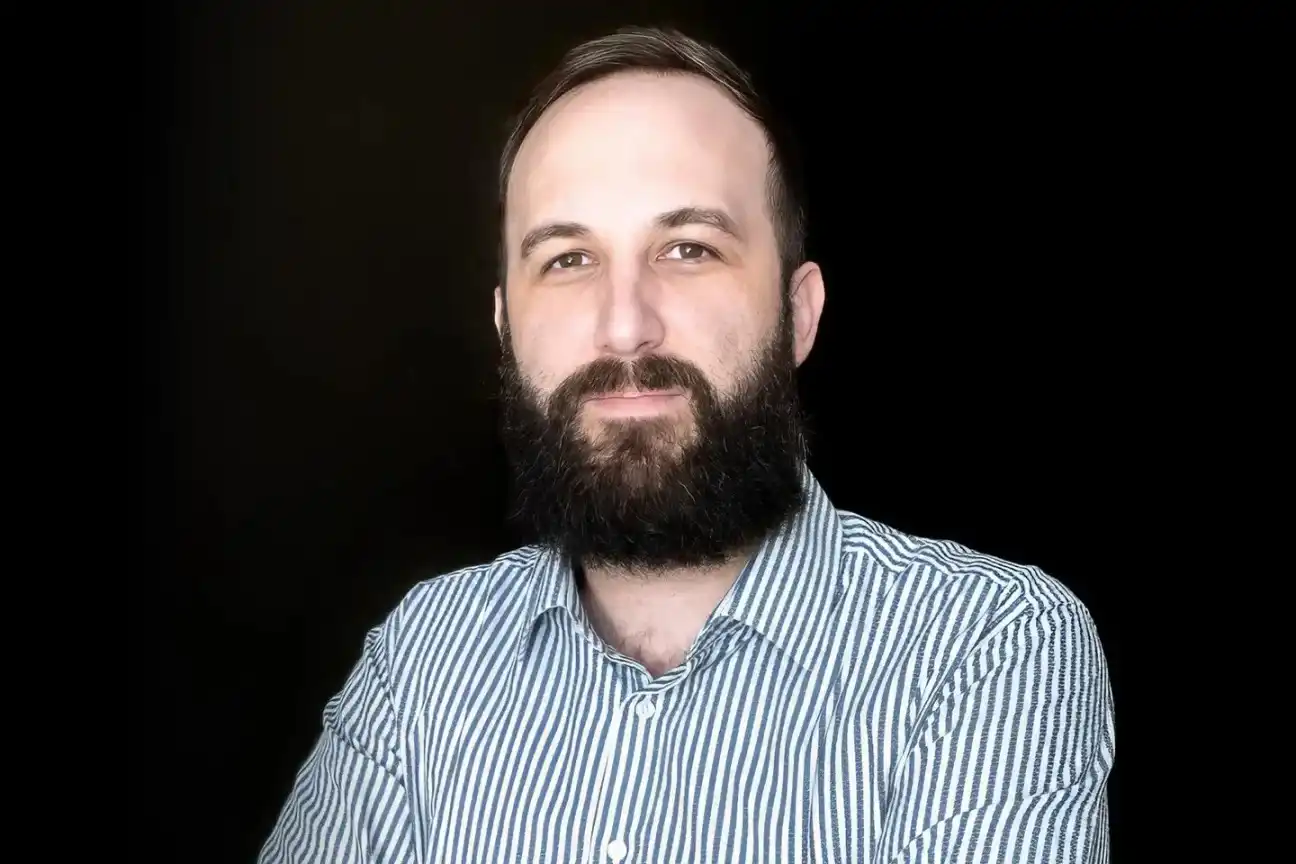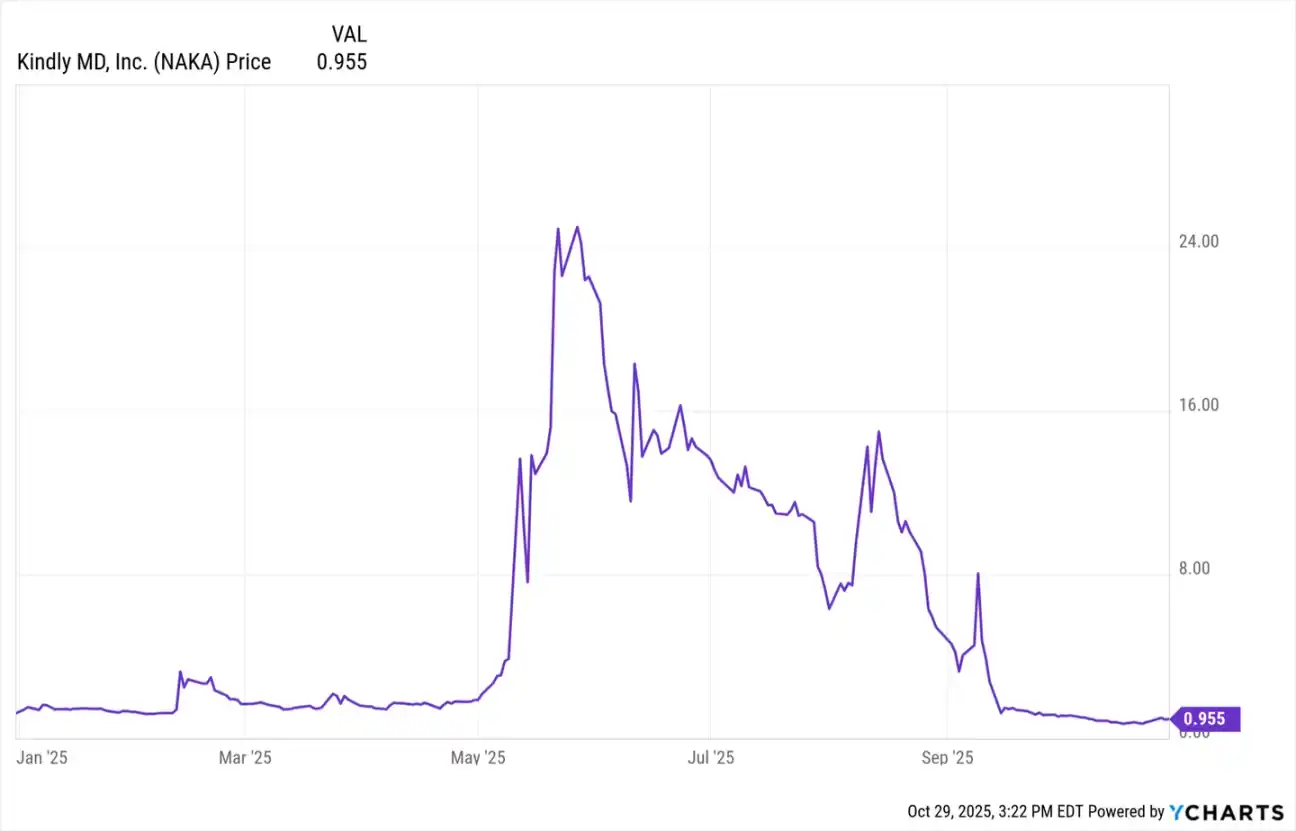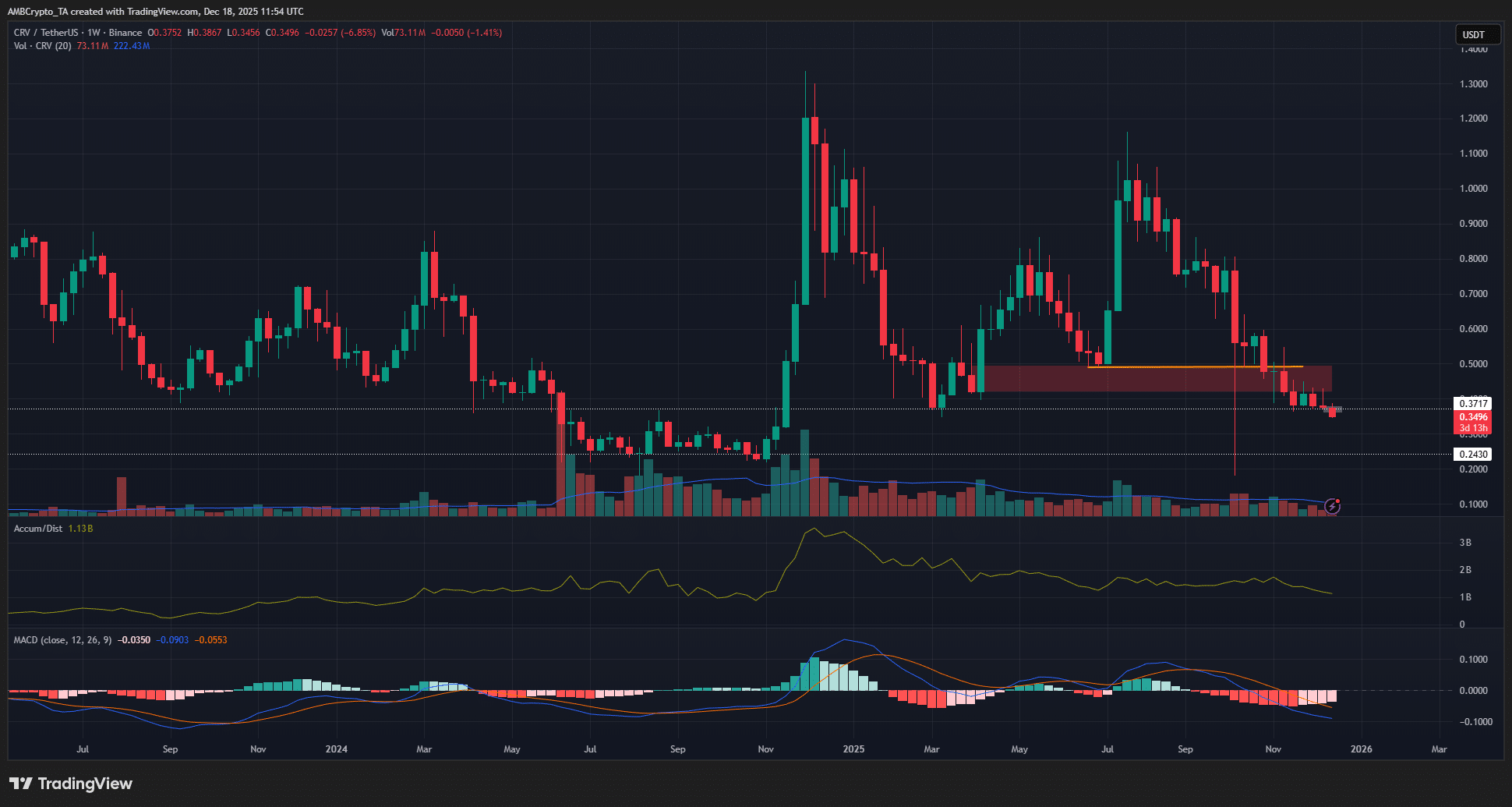Trump's crypto mentor bets $653 million on bitcoin—why isn't Wall Street buying it?
The stock price of this Bitcoin treasury company has plummeted from $25 to $0.92 in six months.
Original Title: Trump's Crypto Adviser's Quixotic Quest To Build A Leading Bitcoin Bank
Original Author: Nina Bambysheva, Forbes
Original Translation: Luffy, Foresight News
In David Bailey's words, the past six months have been nothing short of a "Saving Private Ryan-style brutal battle." The 35-year-old CEO of Nakamoto Holdings—a digital treasury company he founded to manage corporate bitcoin reserves—has witnessed his boldest bet yet: the merger with KindlyMD, a small publicly traded medical company in Utah, which has gone from initial victory to a current ordeal.
"I've been busy getting beaten up in the stock market," he said. The company's share price has plummeted from $25 to $0.92 in just six months.
Bailey is not your typical Nasdaq-listed company executive. He is better known as the CEO of Bitcoin Magazine, organizer of the world's largest bitcoin conference, and a key figure in shifting Donald Trump's stance on crypto. "Our goal," he says, "is to become the number one bitcoin company in the world."

In May this year, KindlyMD—a publicly traded medical clinic operator in Utah with annual revenues of $2.7 million, offering both traditional and alternative therapies—announced a reverse merger with Bailey's Nakamoto Holdings, aiming to transform into a bitcoin holding company. The merged company is listed on Nasdaq under the ticker NAKA and currently holds about $653 million worth of bitcoin.
Wall Street is not optimistic about Bailey's plan. After peaking near $35 in May, the company's stock spent most of October trading below $1, representing a 98% discount to the net asset value of the 5,765 bitcoins held on its balance sheet.
It turns out Nakamoto Holdings has become a victim of its own financing strategy. To raise funds to buy crypto, the company completed a series of public market private equity (PIPE) deals totaling about $563 million. These deals issued hundreds of millions of new shares to private investors at steep discounts, severely diluting existing shareholders. In September, a large number of PIPE shares became tradable, prompting investors to cash out and lock in profits, which triggered a stock price collapse. Bailey's letter to shareholders urging short-term speculators to exit the stock only added fuel to the fire.
"Investors who are only here to trade are actually a very expensive source of capital for us," Bailey said. "I know some people disagree with this view, but what we need are long-term partners whose interests are aligned with ours. For us, this is an all-or-nothing gamble."

In fact, Bailey says, he will soon merge his other businesses—including Bitcoin Magazine, the parent company BTC Inc. of the bitcoin conference and consulting business, as well as UTXO Management, which owns the hedge fund 210k Capital and venture capital firm 2140—into KindlyMD. Forbes estimates these entities could add up to $200 million in value to the bitcoin treasury company, while also increasing Bailey's stake (currently 3%).
Bailey did not comment on Forbes' figures, but said the cash generated by these profitable businesses would help KindlyMD buy more bitcoin. According to sources, 210k Capital alone has quietly grown its assets under management from about $100 million in January this year to $400 million, a fourfold increase.
The logic of this emerging financier is simple: Michael Saylor holds more than 600,000 bitcoins and doesn't have or need many operating businesses. Other players must have differentiated strategies to prove their value.
"We need to do things that create value," Bailey said. "Operating real businesses is one way to do that."
Although KindlyMD is headquartered in Salt Lake City, Utah, Bailey mainly works from his home in Guaynabo, Puerto Rico. On video calls, he is often seen sitting in front of a massive painting depicting a bank engulfed in flames. The piece, titled "Burning Bank," is by crypto artist Cypherpunk Now and is one of hundreds in Bailey's collection.
"Every time I meet with bankers, I make sure this painting is in the background," he laughs. For someone who wants to build his own bank, the scene couldn't be more fitting.
Bailey grew up on a farm in Fayetteville, Tennessee, about an hour south of Nashville. He developed a keen interest in money and markets early on. In 2009, he enrolled at the University of Alabama to study economics, finance, and mathematics, aspiring to become an investment banker.
"I used to be a huge fan of Warren Buffett and attended every Berkshire Hathaway shareholder meeting in college. I never imagined I would buy bitcoin—it was completely out of character for me at the time," he recalled.
In 2012, a friend sent him an article about bitcoin, and everything began to change. Bailey initially thought bitcoin was a scam but couldn't prove it. In November of that year, when bitcoin was trading between $10 and $12, he made his first investment.
In 2014, a year after graduating, Bailey joined Bitcoin Magazine, an early publication focused on the emerging cryptocurrency, co-founded by Vitalik Buterin, who would later create Ethereum. Soon after, Bailey and his college friend Tyler Evans acquired the magazine through their jointly founded BTC Inc.
To expand the brand's influence, the two launched the Bitcoin Conference in 2019. This festival-like event has now become the "Coachella of crypto," making Bailey one of the most influential bitcoin evangelists. Last year's conference in Nashville attracted 35,000 believers, investors, and politicians, including then-presidential candidate Donald Trump.
Bailey says his connection with Trump began with a conversation in Puerto Rico in 2024: how to get the president interested in bitcoin. "Paul Manafort was the initial gatekeeper who helped us get into his circle," he said. Soon, Bailey's team was allowed to make a pitch at Trump Tower. The core message was simple: bitcoin voters would play a key role in the presidential election. Always the dealmaker, Trump agreed to meet—if Bailey and his friends could bring votes and enthusiasm, the crypto industry would get a voice.
"Trump turns everything into a season of The Apprentice—you're always auditioning," he added. "'Okay, you want to be the bitcoin adviser? I'll bring in three more people to compete for the spot.'" Bailey ultimately prevailed, joining forces with industry leaders to raise over $100 million for Trump's campaign, with $21 million raised at the Nashville conference alone. At that event, Trump's famous promise—to make America the global capital of crypto—became widely known.
"He was very unsure at first, but the cheers from the crowd changed his mind. As he left, he said, 'These bitcoin people like me—they're my people,'" Bailey recalled. He now serves as an informal adviser to the president. In his view, Trump simply realized that crypto was being treated differently from every other asset class (after the election, Trump has already made hundreds of millions from crypto). Bailey believes the current goal is to create a level playing field, and the bigger vision is to make the U.S. the most bitcoin-friendly country in the world.
Bailey claims that in his 13-year career, he has invested in over 100 bitcoin-related companies, with the best performers—Metaplanet and Smarter Web—turning millions of dollars into hundredfold returns. He says the returns are not just financial; good ideas get copied. "If thousands of bitcoin companies thrive, we win."
This Buffett-inspired long-term vision is now driving KindlyMD's development. Bailey envisions building it into a large holding company with profitable, independently operated subsidiaries. For him, this is not just an investment strategy but a replay of monetary history. What he calls the "bitcoin standard" echoes the evolution of gold: bullion dealers became bullion banks, which then developed into central and investment banks. He believes today's bitcoin treasury companies are the bullion dealers of the digital age, evolving toward a new kind of bank.
KindlyMD is pushing this transformation. The company has already invested in other bitcoin holding companies, namely Japan's Metaplanet and the Netherlands' Treasury B.V. "Imagine nurturing an ETF," Bailey explains. "That's exactly what we're doing—cultivating these actively managed ETFs in the form of corporate stocks on a global scale." Of course, like other newly established crypto treasury companies, Bailey's approach to entering public markets bypasses the scrutiny of the U.S. Securities and Exchange Commission (SEC) on ETFs and IPOs.
Despite KindlyMD's lackluster "debut" on Wall Street, Bailey isn't too concerned. "The best thing about bitcoin is that it's very forgiving—you can make mistakes in your career and start over," Bailey said.
Disclaimer: The content of this article solely reflects the author's opinion and does not represent the platform in any capacity. This article is not intended to serve as a reference for making investment decisions.
You may also like
Dissecting Curve DAO’s price action as CRV eyes another support test

Damaging Impact: Cardano Founder Reveals How Trump’s Crypto Moves Hurt the Market
Crucial Alert: CoinMarketCap’s Altcoin Season Index Plummets to a Weak 17
